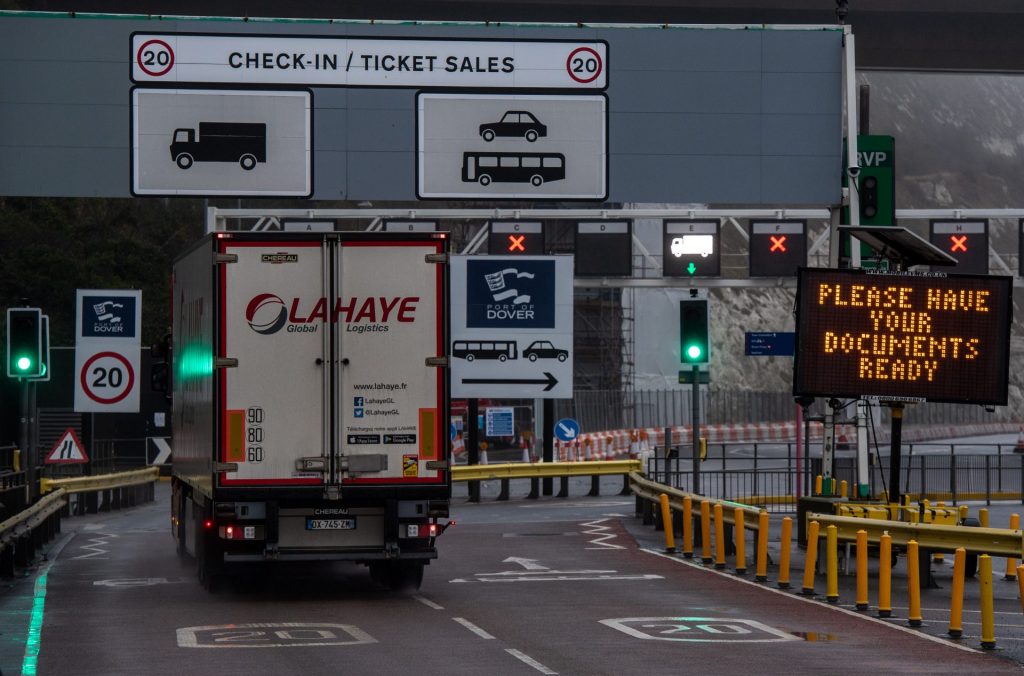Like the gift that keeps on giving, Brexit has only just started. Yes, it has been five years since the referendum and a full year since the UK left the European Union, but we are yet to feel the full effect.
That’s not only because the economic and reputational hits are not going to stop but because the Brexit we have enjoyed so far is only the first wave.
The UK government, despite having had five long years to prepare and insisting that the deal just had to be done, was strangely enough not ready for Brexit and so kicked many of its provisions down the road. But these are about to be introduced throughout 2022, meaning that all the damage of the first year will be just a taster for what’s to come.
Three main types of new rules are being introduced on January 1. They are the imposition of checks that the EU levied on our exports from day one of Brexit but which the UK has so far avoided, new checks and red tape on all food and drink trade, and Rules of Origin regulations.
Until now, UK border authorities have hardly bothered to check incoming goods from the EU; they haven’t had the facilities and they knew it would be very disruptive. So, goods and trucks have been waved through the UK’s borders, and firms have had months in which to fill in the forms and pay any tariffs or VAT.
But from the start of 2022 all van and lorry operators, foreign and domestic, will have to register with the Goods Vehicle Movement Service for a goods movement reference number, without which it will be impossible to move through a UK port.
Given that many haulage firms use foreign drivers and vehicles, it is not known how many will register or even if they know they have to. What they should also know is that they will also need a new international operating licence if they want their drivers to travel back and forth from the EU from May. Yours for just over £1,000.
Then firms will have to have all the paperwork ready on the day their load crosses the border between the EU and the UK and pay any taxes or tariffs that are due. If the forms are not completed correctly and the money is not paid, the goods will, in most cases, not be allowed to leave the port.
These rules were introduced on the EU side of the border at the beginning of 2021. Strangely enough, the failing and sclerotic behemoth managed to prepare for the new border in time.

But now the UK says it is finally ready to do the same. Many in the logistics sector have their doubts about that. British industry has long and painful memories of failed government computer systems and of red tape and checks with endless teething problems, and it is fully expecting the same this time.
The potential problems won’t be helped by the lack of knowledge or preparedness of small firms in the UK, the ones most likely to throw in the towel and give up on international trade.
At the beginning of December, the Federation of Small Businesses found 25% of its members weren’t ready for these new rules and one-third of them hadn’t even heard of them until asked in the survey.
On top of those problems, the UK’s agriculture and food industries (the country’s largest manufacturing sector) face the full introduction of new measures on sanitary and phytosanitary standards. These cover agri-food products and will mean the pre-notification of agri-food imports from the start of 2022. Starting in July, they will also need export health certificates and there will be physical checks at border control posts.
The costs to the food and drink industry will be huge, the previously unnecessary checks tiresome and the delays for time-sensitive produce irksome. That all comes on top of the hit the industry has already taken. The latest figures show that its exports to the EU have fallen by about a quarter since 2019, at a cost of £2.4bn, with smaller firms suffering the most. The figures for individual countries are even worse: exports of food and drink to Germany fell 44.5% while exports to Spain halved, and the industry expects these new rules to hit sales even harder.
But the biggest problem for British industry will come with the introduction of tough new regulations on Rules of Origin.
These are designed to make sure businesses cannot just import something into the UK, stick a Union Jack flag label on it and re-export it to the EU free of tariffs. Nor can, say, a Canadian axe maker get around tariffs on their products by exporting the heads and the handles to the UK and just putting the two together in a small UK factory. The Rules of Origin would show that not enough of the axe originated in the UK; it is, therefore, Canadian and would attract the appropriate tariffs.
The UK has quite a few businesses that were attracted by its access to the single market and function as little more than final assembly plants; these are, therefore, likely to fall foul of Rules of Origin.
The rules vary from industry to industry and product to product but the onus is on firms to prove that their products were mainly produced in the UK. Many firms will have to collect the data to prove they can export tariff-free, or they may collect it and suddenly discover they can no longer export to the EU without tariffs.
It is hardly surprising that a third of all British firms say they are not at all ready for full Brexit customs checks. We can also see what is likely to happen as a result, because many of these rules have been in place on the EU side for a year.
The Centre for European Reform (CER), which models UK imports and exports against similar countries to measure the Brexit effect, has found that the UK goods trade is already as much as 16% lower than it would have been without Brexit.
The UK services sector figures are very similar. It has faced particular challenges post-Brexit and recent figures from the ONS show that services sector exports globally were down by about 14% in the second quarter of 2021, compared with the same quarter in 2019. The equivalent figure for EU exports over the same period is close to 30%. The difference between the two, which is very similar to the CER calculations, shows very clearly that Brexit has done even more harm to the UK economy than Covid.
Much of that collapse in trade came about because many firms, especially small and mid-sized enterprises (SMEs), which happily traded across the EU before Brexit, decided they could no longer be bothered. If many firms thought the Brexit red tape introduced in 2021 was enough to stop them exporting, many more are going to find the same thing in 2022, not only with exports but also with imports.
Finally, we know that many British firms decided during 2021 to just pay tariffs on their exports to the EU. Every single one of them was entitled to zero tariffs but had to fill out forms to claim that right, and so 10% just paid the tariffs. It was cheaper and easier for them to pay taxes than to fill out the forms. Much the same is likely to happen for EU firms now when they are exporting to the UK.
But whether they pay the extra taxes or waste time and money filling in forms and preparing for checks at the border themselves, the end result will be the same. If they can be bothered to trade with the UK, they will just take the added costs and pass them on to their customers in Britain, pushing up prices and inflation.
We can, therefore, expect further substantial hits to exports to and imports from the EU, even if the new systems work perfectly, while the supply chain could face real problems if they do not.
Industry experts believe that if the border is under threat of grinding to a halt, the UK government will just back down and delay the introduction of the new rules and regulations yet again. But even if it does do that, much of the damage has already been done.
Adam Posen, the American economist and formerly a member of the Bank of England’s Monetary Policy Committee, has described Brexit as a trade war, but one that the UK has declared on itself.
The UK is forcing self-inflicted defeats upon its exporters, service and manufacturing sectors and economy, time and time again, with no victories to offset the losses. The government is intent on putting red tape, costs, checks, taxes, rules and regulations in the way of British business. We have only seen the first tranche. More will come and the consequences are obvious and inevitable.












